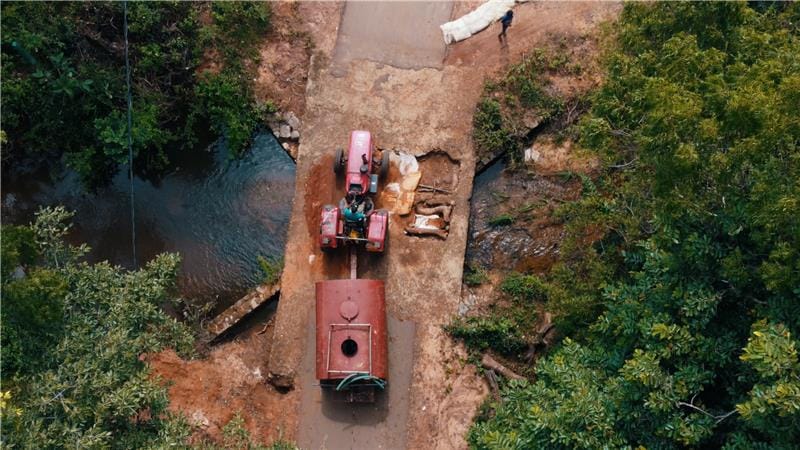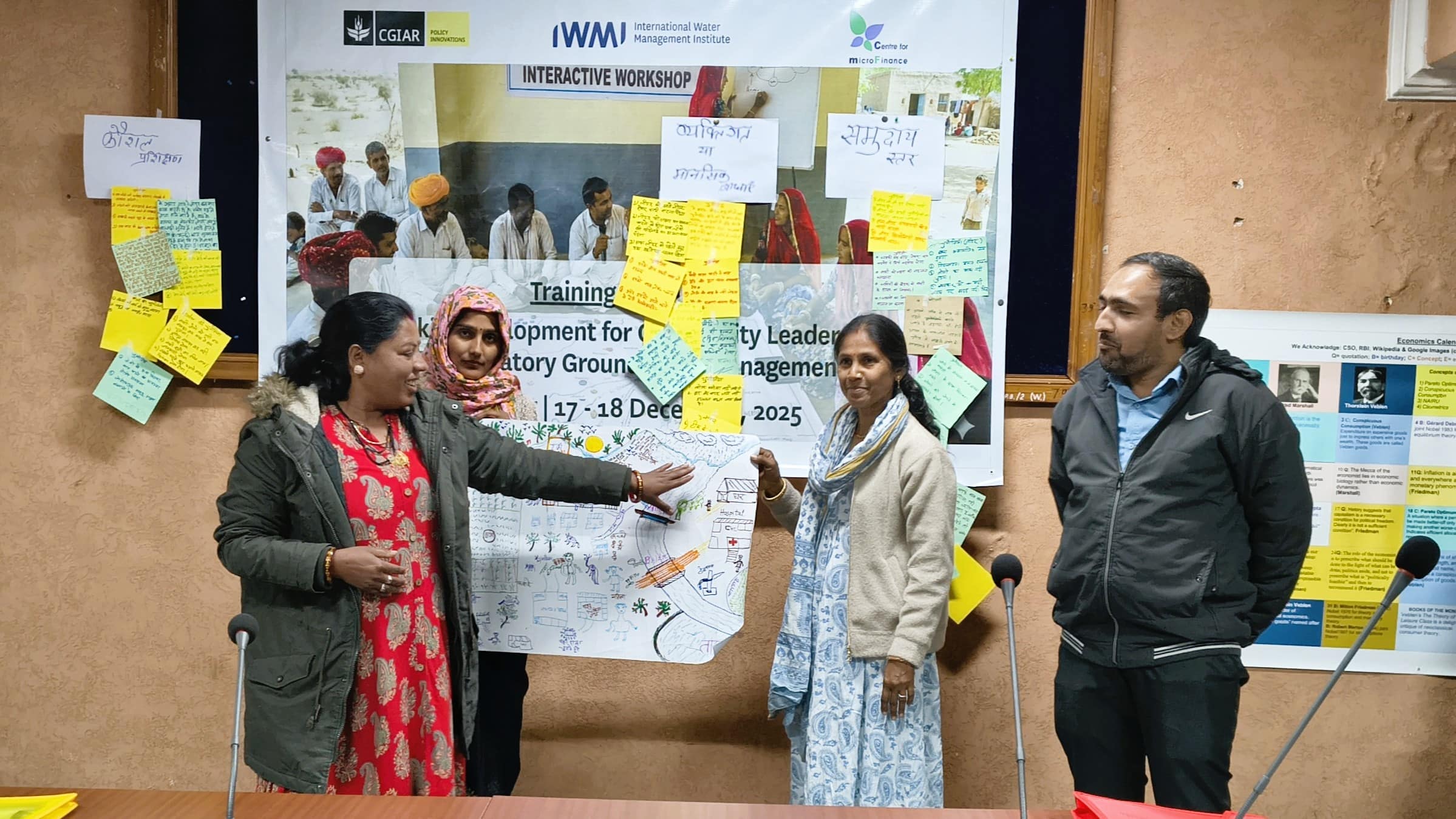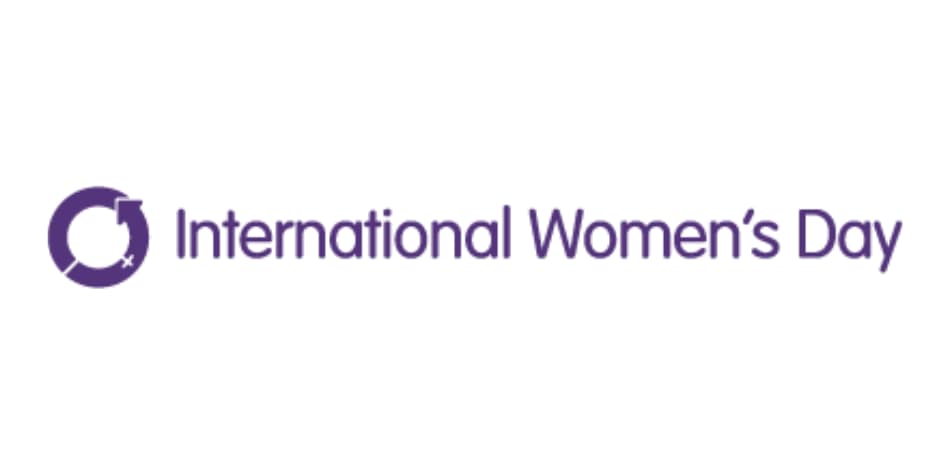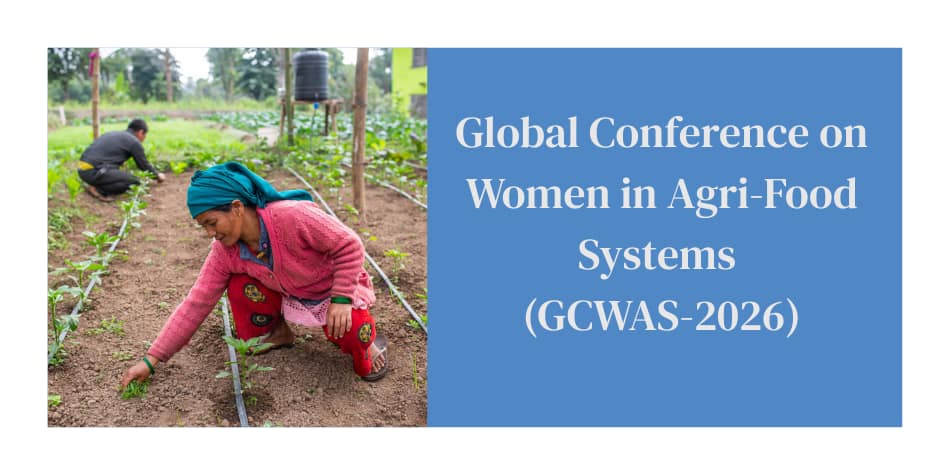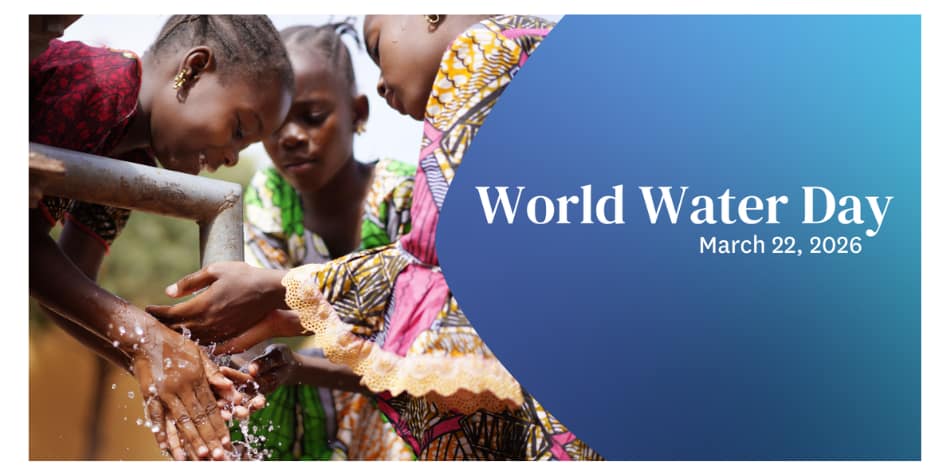Act before the drought, not after
In Sri Lanka’s dry zone, scientists and communities rehearsed drought response through a simulation — preparing for water scarcity before crisis strikes.
Can we build groundwater stewardship through participatory games?
India’s groundwater crisis cannot be solved through technical fixes alone. Collective community leadership fostered through participatory exercises can offer a way forward.
Latest publications
Journal Article
Development of the Niger Basin Drought Monitor (NBDM) for early warning and concurrent tracking of meteorological, agricultural and hydrological droughts
MDPI | February 27th, 2026
Book Chapter
Chapter 15 – Summary: beyond crop water productivity to transform agricultural water management
Elsevier | February 27th, 2026
Book Chapter
Chapter 14 – Institutions and governance for agricultural water management in support of resilient food systems
Elsevier | February 27th, 2026
Book Chapter
Chapter 12 – Gender equality and social inclusion in agricultural water management
Elsevier | February 27th, 2026



